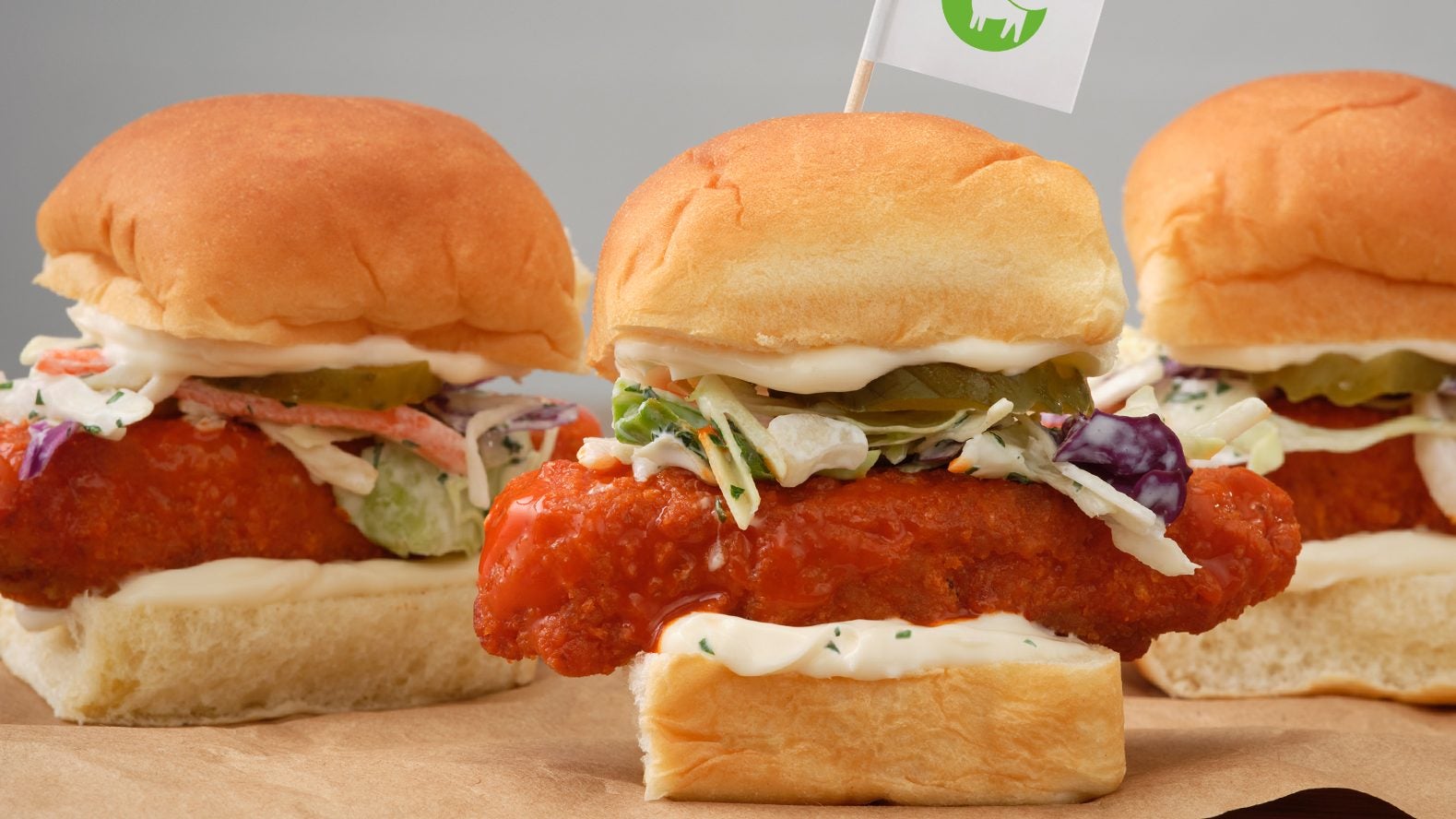Long-awaited plant-based chicken promises to be ‘almost identical’ to the real thing
Beyond Meat might have another plant-based winner on its hands, one that could plausibly top its popular Beyond Burger.


Beyond Meat might have another plant-based winner on its hands, one that could plausibly top its popular Beyond Burger.
Customers who crave chicken but have given up meat to benefit their health, animals, or the environment now have a substitute poultry option from the company: breaded “chicken” tenders made from fava beans and pea protein.
The ersatz meat product began appearing on menus at only 400 restaurants in the US last week but should be making its way to many more fast-casual eateries, hotels, stadiums, and other businesses soon. The company has not publicized a launch date for supermarket sales, according to Bloomberg, but that too is presumably imminent.
Fake chicken that sounds too good to be true
This is not the company’s first attempt at replicating chicken without animal protein. Beyond took a shot at meat-free frozen chicken tenders in 2012 but the firm dropped the line in 2019 following mixed reviews.
Now it’s back, and according to Sigal, the scientists in Beyond’s lab have learned from their mistakes. Not only do these tenders taste delicious, but the texture almost perfectly mimics chicken’s fibrous muscle, the obstacle that has held back doppelganger-level vegan chicken for years. (Other companies make chicken-style fingers for vegetarians without pretending their poultry would fool a carnivore.)
Early reviews for Beyond Chicken are promising. At Vox, for example, reporter Sigal Samuel called the breaded tenders “almost identical” to the real thing.
David Grossman, CEO of the small chain Epic Burger, told Bloomberg that the new faux chicken was “awesome” and likely to become a permanent menu item. That chain will sell three tenders for $9.
The market potential is huge
Should other would-be chicken tender fans agree with such favorable evaluations, the new product could provide a huge boost for Beyond and its investors. Americans eat more chicken than any other kind of meat and chicken is second to pork for global consumption. In the US, broiler chickens (raised specifically to become someone’s meal) are a $21 billion market. Alternative meat companies only have to convert a fraction of habitual chicken eaters—or convince them to swap in some vegan meat periodically—to realize significant earnings.
Veganism, whether wholehearted or a part-time affair, has gained more adherents in recent years. The US plant-based meat market is already a multi-billion-dollar business and a $20 billion market globally. These days, imitations that look and chew like authentic animal proteins even stand ready to tarnish meat’s image as a symbol of wealth and luxury in China.
The chicken category specifically is also growing: The amount of plant-based chicken that was shipped to US commercial restaurants is up 19% compared to 2019 and 15% compared to last year, according to Bloomberg.
But Beyond will not be alone on restaurant menus or in the new faux-cuisine sections of mainstream supermarkets across the country, whenever the tenders get there. The competition in the faux-poultry category includes giants like Maple Leaf Foods’ Lightlife and Gardein from Conagra Brand. In the wider vegan meat category, it’s up against its chief rival Impossible Foods and others.
Is fake chicken healthy?
One key criticism of many plant-based meat dishes is that they have an unearned health halo. Your breakfast sandwich might contain a sausage patty made from peas, but it’s still high in calories and salt, and invariably served on white bread, critics say. The good news is that Beyond’s Chicken tenders, which offer 14 grams of protein per serving, have no cholesterol and 40% less saturated fat compared to chicken tenders made for restaurants, but they are loaded with sodium.
Vegan chicken fingers, even the most delicious ones, might never be as nutritious as real-deal vegetables.